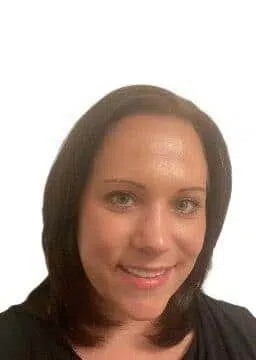Beginning the addiction recovery process can be incredibly difficult when struggling with intense cravings and other withdrawal symptoms. Fortunately, rehab centers like The Recovery Village Columbus offer medication-assisted treatment to help you stop using substances like opioids or alcohol and learn how to remain sober.
What Is Medication-assisted Treatment?
Medication-assisted treatment (MAT) is an evidence-based treatment for opioid and alcohol addiction. When a person participates in MAT, they take medications that block cravings or act as a substitute for opioids or alcohol.
MAT is important in helping to prevent relapse, which is common in recovery. As part of a comprehensive rehab care plan, MAT can help fight cravings that might otherwise trigger a relapse, helping you maintain your long-term recovery from opioids or alcohol.
Medication-assisted Treatment for Alcohol Abuse
Quitting drinking can be very taxing, and medications may be needed to help restore normalcy for the brain and body. This is because alcohol impacts many facets of your brain and the body’s chemical balance. When you drink, the brain releases dopamine, a feel-good chemical in the brain’s reward pathway. Alcohol also causes your brain to release the relaxing chemical gamma-aminobutyric acid (GABA), which slows the brain’s activity and causes sedation.
New Year. Real Recovery.
The pressures of the season are real. Find lasting peace and expert support.

MAT for alcohol abuse helps you stay sober by easing your body’s response to the absence of alcohol. To prevent side effects, medications are started after the medical detox is complete and your system is free of alcohol.
Overcome addiction with evidence-based, expert care.
Medications Used for Alcohol Addiction
The Food and Drug Administration has approved several drugs for treating chemical imbalances that result from chronic heavy alcohol abuse. These drugs include naltrexone and acamprosate, which work by reducing withdrawal symptoms or reducing dopamine’s feel-good effects.
Naltrexone
Naltrexone (ReVia, Vivitrol) is an opioid-receptor antagonist often prescribed to people in recovery from alcohol abuse. The drug is available as a daily oral tablet and a long-acting monthly injectable. Naltrexone is most effective in those who have stopped drinking and need assistance staying sober.
The drug works by reducing the pleasurable effects of drinking. When you take naltrexone, your brain doesn’t release as much of the feel-good chemical dopamine when you drink.
Acamprosate
Acamprosate (Campral) is a medication that comes as an oral tablet you take three times a day. The drug helps you stay sober by lessening alcohol withdrawal symptoms. It accomplishes this by reducing the amount of a brain chemical called glutamate.
Glutamate can cause problems during alcohol withdrawal. If you drink heavily and suddenly stop, the amount of glutamate in your brain often increases, leading to withdrawal symptoms. Since acamprosate lessens glutamate in the brain, the drug helps you avoid withdrawal symptoms.
Medication-assisted Treatment for Opioid Addiction
Opioids achieve their pain-relieving effects through their actions on the brain’s mu opioid receptors. These drugs are addictive because they trigger the brain’s reward pathway, increasing feel-good chemicals like dopamine. With chronic use, the body adjusts to the opioids and becomes dependent on them. For this reason, suddenly stopping or cutting back on opioids can cause withdrawal symptoms.
MAT for opioid use disorder is prescribed to help ease opioid withdrawal symptoms and prevent relapse. MAT therapies for opioid use disorder can usually be started as soon as a person begins the medical detox process.
Medications Used for Opioid Addiction
Experts strongly recommend MAT as a cornerstone of opioid use disorder treatment. Three primary medications are often prescribed as MAT for opioid abuse: methadone, Suboxone (buprenorphine) and naltrexone.
Methadone
Experts consider methadone (Dolophine, Methadose) a first-line treatment for opioid use disorder. When prescribed for MAT, the drug usually comes as an oral liquid taken once daily.
The drug is a long-acting opioid that works on the brain’s mu opioid receptors, similarly to other opioids. However, as an extremely long-acting drug with a slow onset, methadone does not cause the euphoric high generally associated with opioids. Instead, methadone works by preventing both withdrawal symptoms and cravings. Further, the drug stops a person from getting high if they slip up and take another opioid.
Methadone is offered through specialized clinics and is not provided at The Recovery Village Columbus; however, alternative medications are available.
Suboxone (Buprenorphine)
Like methadone, buprenorphine is an opioid widely considered a first-line treatment for opioid use disorder. It works similarly to methadone in that it prevents withdrawal symptoms and cravings and blocks a high if a person relapses.
Buprenorphine is sometimes prescribed independently, but it is more commonly prescribed in a combination drug like Suboxone, which also contains the opioid reversal agent naloxone. The naloxone component of the drug combination plays an important role, as it ensures the drug is not misused. Naloxone is inactive when a person takes buprenorphine as directed by mouth. However, if someone attempts to misuse buprenorphine by dissolving and injecting it, the naloxone becomes active and blocks buprenorphine’s effects.
The Recovery Village Columbus offers Suboxone orally disintegrating strips as medically indicated. However, buprenorphine also comes in several other oral forms, including orally disintegrating tablets and strips and a long-acting injectable or implant.
Naltrexone
Naltrexone (ReVia, Vivitrol) is not considered a first-line therapy, unlike methadone or buprenorphine. Naltrexone is an opioid blocker that stops opioids from attaching to the brain’s mu opioid receptors. It is available as an oral tablet taken daily and as a long-acting injection.
Because it blocks opioids, naltrexone can trigger withdrawal if you have opioids in your system when you start the drug. For this reason, naltrexone should only be started when your body is completely opioid-free, which may be as long as 14 days after the last opioid dose.
Other Medications Used
Other medications are occasionally used in MAT, such as disulfiram (Antabuse) for alcohol use disorder.
Although in the past, some doctors may have used additional medications for MAT, specifically for alcohol use disorder, most other drugs are no longer recommended by experts. These obsolete treatments include barbiturates like phenobarbital and benzodiazepines like lorazepam (Ativan). Although benzodiazepines play a role in helping someone avoid alcohol withdrawal symptoms during medical detox, they do not have a role in helping someone avoid alcohol or cravings through MAT after withdrawal is complete.
Benefits of Medication-assisted Treatment
Medication-assisted treatment is a cornerstone of recovery care for opioid and alcohol abuse. MAT can help prevent withdrawal symptoms and relapse alongside interventions like medical detox and rehab. Long-term behavioral change in recovery takes time and can involve slip-ups, but MAT can significantly lessen these and make them less dangerous. MAT is important in helping people stay sober after deciding to quit alcohol or opioids due to the following benefits:
- MAT works quickly: In the case of an opioid use disorder, MAT can start to work rapidly to ease withdrawal symptoms and prevent relapse.
- MAT prevents relapse: In both alcohol use disorder and opioid use disorder, MAT can keep patients from relapsing and help them maintain sobriety.
- MAT prevents death from alcohol overdose: Research shows that MAT helps prevent relapse and death from drinking.
- MAT can continue indefinitely: In many cases of opioid use disorders, experts recommend staying on MAT to help support a person’s long-term sobriety. Similarly, MAT for alcohol use disorder can be continued as long as the person desires.
What To Expect at The Recovery Village Columbus
When you contact The Recovery Village Columbus to start your treatment journey, your Recovery Advocate will answer questions about treatment and perform a pre-assessment. They will then recommend a treatment program tailored to your needs. Treatment often begins with a medical detox, followed by inpatient or intensive outpatient care. You may step down to lower levels of care as your recovery progresses.
When you arrive at The Recovery Village Columbus, our dedicated staff will perform a comprehensive assessment to help create your treatment plan. Your length of stay depends on your treatment plan, recovery progress and insurance coverage. In general, you may receive:
- Medical detox for 7–10 days
- Inpatient care, including medical detox for 30–45 days
- Outpatient care for 1–3+ months
Our doctors may recommend MAT as medically appropriate for your treatment needs and recovery goals.




